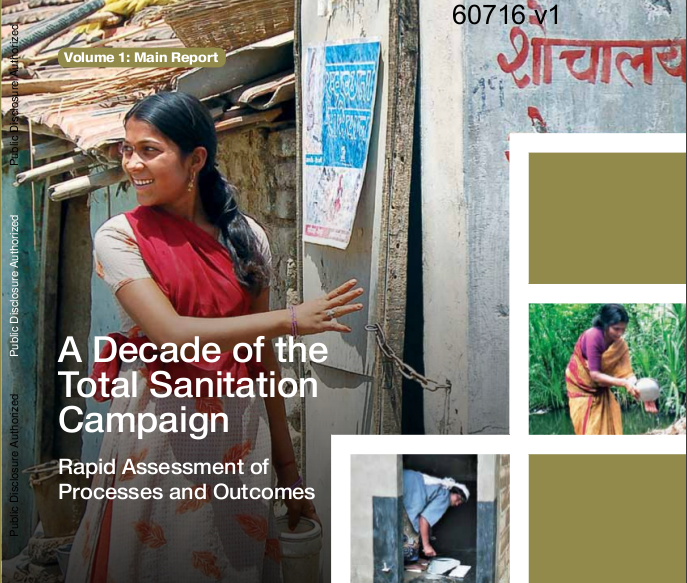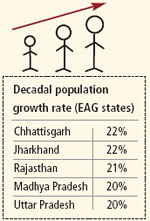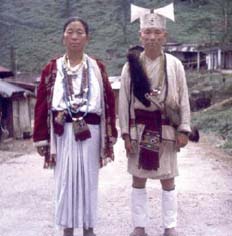/topics/voluntary-citizen-or-civil-society-sector
Voluntary Citizen or Civil Society Sector
Private company seeks to invest in Indian companies operating in the water segment - Details required
Posted on 03 May, 2011 11:38 AMHi everybody,
I represent a private equity fund that seeks to invest in Indian Infrastructure. Within this we are greatly interested in investing in Indian Companies operating in the water segment. These companies should primarily be in
- Water Distribution/Irrigation Business (BOT / BOOT formats)
- Manufacture of Water Treatment Plants/Filtration/Metering Equipments and other equipments in water distribution/irrigation segments
A decade of the Total Sanitation Campaign - Rapid assessment of processes and outcomes - A report by the Water and Sanitation Program (2011)
Posted on 30 Apr, 2011 05:23 PM The Water and Sanitation Program has analysed secondary data on the Total Sanitation Campaign (TSC) available on government websites and conducted primary analysis in 22 sample districts spread across 21 states.
The Water and Sanitation Program has analysed secondary data on the Total Sanitation Campaign (TSC) available on government websites and conducted primary analysis in 22 sample districts spread across 21 states.
With the use of secondary and primary data the report has not only been able to give a macro view of the TSC but also has been able to go into the nitty-gritty of the campaign. There are case studies of districts and villages that have achieved open defecation free status.
AFPRO propagates Geospatial Technology (GT) solutions in Natural Resource Management (NRM)
Posted on 28 Apr, 2011 11:40 AM. It has been recognized as an ‘Organization of National Importance’ by the Government of India vides notification no.124/2004 F. No. 200/59/2003 – ITAI dated 26 March, 2004.
AFPRO propagates Geospatial Technology (GT) solutions for planning and implementing environmentally sound interventions related to development of land and water resources, food security and rural livelihoods. The experiences of AFPRO range from designing spatial database(s), adoption of GT in understanding changes in existing natural resources, impact assessment and role of community in better management of natural resources. Based on its varied experience in Natural Resource Management (NRM), watershed management, water & sanitation, protected area management and rural development has been identified as organisational thrust areas.
A structure for environment governance: A perspective on proposed National Environmental Protection Agency – A commentary in Economic and Political Weekly
Posted on 27 Apr, 2011 07:46 PMThis report on a round table held in November 2009 by a cross section of activists, policy analysts and academics deals with a move by the Ministry of Environment and Forests (MoEF) to restructure the environmental governance structure of the country through the proposed National Environmental Protection Agency.
A demo on the use of hydrosheds (hydrological data & maps based on shuttle elevation derivatives) at multiple scales for Orissa
Posted on 27 Apr, 2011 02:21 PMThe national hydrographic dataset can be used to delineate watersheds and mark all streams and channels that contribute to the flow at the outlets of these watersheds. Even though I was able to find out pdfs created by the National Information Center, I felt we need something better than the pdfs.
Census: India, a nation of 1.21 billion - Article from Down to Earth
Posted on 25 Apr, 2011 05:30 PM
 India is the most populous nation after China (1,342 million). India hosts 17.5 per cent of the world’s population compared to China’s 19.4 per cent. Of 28 states and seven Union Territories, 20 states contribute to 98 per cent of India’s population.
India is the most populous nation after China (1,342 million). India hosts 17.5 per cent of the world’s population compared to China’s 19.4 per cent. Of 28 states and seven Union Territories, 20 states contribute to 98 per cent of India’s population.
Citizen's uprising against encroachment and pollution of Ram Nadi, an urban river in Pune, Maharashtra
Posted on 25 Apr, 2011 11:37 AMForwarded to the portal by: Parineeta Dandekar
Role of indigenous knowledge system in conservation of forest resources – A case study of the Aka tribes of Arunachal Pradesh – A paper in the Indian Journal of Traditional Knowledge
Posted on 23 Apr, 2011 09:01 PM Indigenous knowledge is the basis for local level decision making in agriculture, healthcare, food preparation, education, natural resource management, and a host of other activities in rural communities.
Indigenous knowledge is the basis for local level decision making in agriculture, healthcare, food preparation, education, natural resource management, and a host of other activities in rural communities.
Certificate of Advanced Studies in Management of Development Projects – EPFL - Apply by 31st July, 2011
Posted on 22 Apr, 2011 06:14 PMWith more than 250 laboratories and research groups, Ecole Polytechnique Federale de Lausanne (EPFL) (Swiss Federal Institute of Technology Lausanne) is one of Europe’s most innovative and productive technology institutes.
To help professionals to adapt to today’s globalized world, situations and promote an interdisciplinary and multicultural approach to these problems, the Swiss Federal Institute of Technology (EPFL), Lausanne with the support of the Indian Institute of Science (IISc), Bangalore, is organizing a Certificate of Advanced Studies in Management of Development Projects (MaDePro) targeted at project managers, engineers, architects, social scientists and other equivalent university graduates. The program is based on three different aspects: knowledge, practice and skills.
Between the city and the salty sea - The wells of Bhuigaon, Thane, Greater Mumbai - Guest post by MS Gopal
Posted on 22 Apr, 2011 05:57 PMAs the concrete jungle of Greater Mumbai reaches Bhuigaon and overuse of groundwater sucks in the sea water, the traditional wells are under threat.





